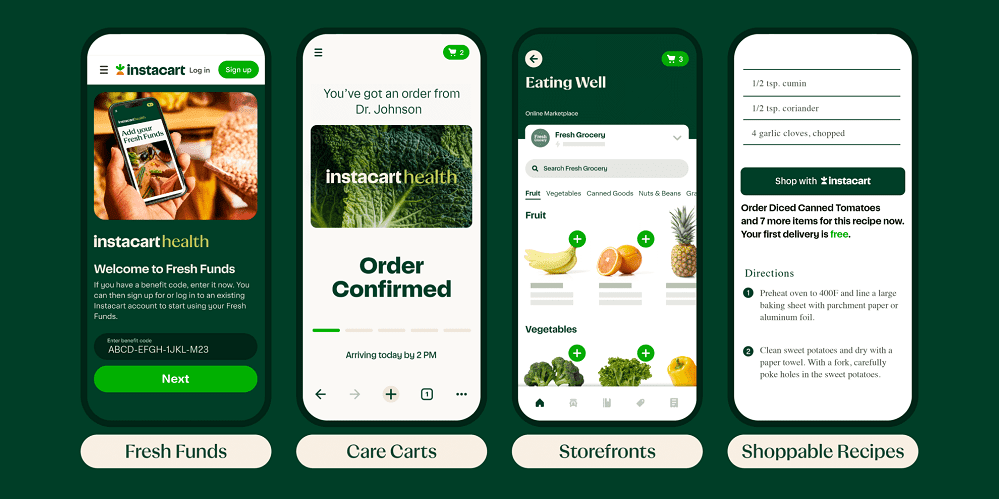Instacart Health Launches Tools to Scale ‘Food as Medicine’ Programs


Healthcare providers can now leverage a suite of digital tools from Instacart that are designed to enhance collaborative care, promote healthy choices and deliver nutritious food to patients and their families, particularly those living in food deserts or needing a medically restricted diet.
“We know that access to nutritious foods can deliver healthier outcomes, but a number of challenges have prevented healthcare providers from effectively adopting food as medicine programs at scale,” said Sarah Mastrorocco, VP and General Manager of Instacart Health in a statement. “With Instacart Health, we have the unique opportunity to partner with providers to expand proven nutrition programs and more deeply integrate food as medicine into standard patient care.”
The Instacart Health tools help providers prescribe food just as they would medications with products including:
- Fresh Funds: Providers can give customizable Instacart stipends to patients, enabling them to directly purchase nutritious foods on Instacart from a curated selection of recommended items or specific ingredients for medically tailored meal plans. Patients also can use SNAP benefits or traditional funds to complete their online shopping trip in the same order. As part of this program, patients can consent to share their purchase history with their provider;
- Care Carts: Providers can send custom grocery deliveries, based on a physician-recommended diet, directly to patients in their care, with tools that can measure program effectiveness and identify where nutritious foods can have the greatest health impacts.
These products can be combined with tools designed to educate and inspire patients to make healthier choices, including:
- Virtual Storefronts: Patients can visit their provider’s curated shop, browse specific recommended foods and order them from local retailers for same-day delivery;
- Shoppable Recipes: The Instacart recipes widget lets providers make their recommended recipes shoppable, enabling patients and caregivers to add ingredients directly to their Instacart order; and
- Lists for Nutrition: Rather than providing patients with a printout of required or restricted foods during their visit, providers can create medically tailored grocery lists on Instacart that help make food as medicine plans immediately actionable and convenient.
Boston Children’s Hospital is among the first health systems leveraging Instacart Health provider products to establish new food as medicine programs. “At Boston Children’s Hospital, we’re committed to pushing the boundaries of what’s possible in pediatric health and addressing our patient health needs holistically,” said Dr. John Brownstein, Chief Innovation Officer at the hospital in a statement. “Together with Instacart Health, we are excited to explore this technology further to help our providers deliver programs serving patients and families with specific dietary needs. Food and nutrition programs are essential to disease treatment and prevention.”
Instacart also has announced four new studies with leading academic institutions and health systems examining the impact of nutrition security interventions and food-as-medicine programs on different patient groups, including those living in low-income and food-insecure households.











